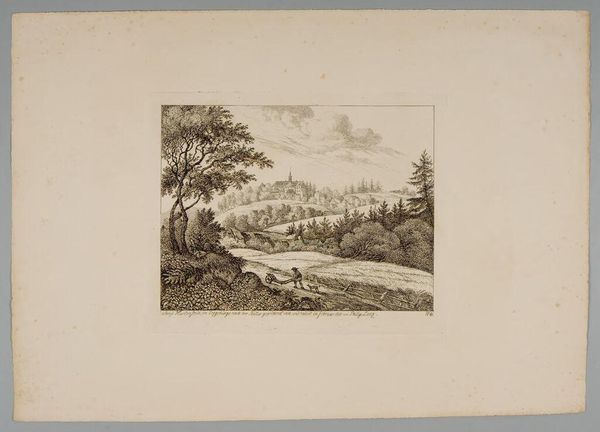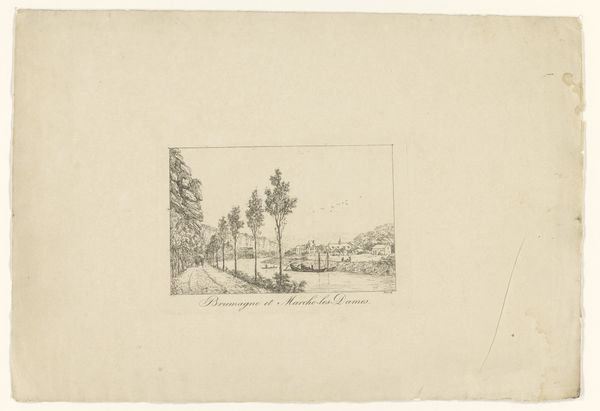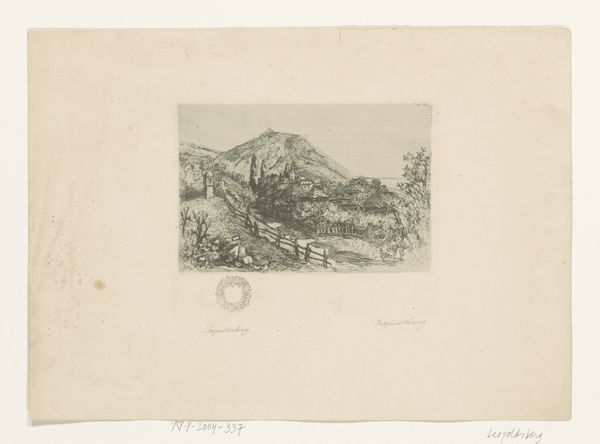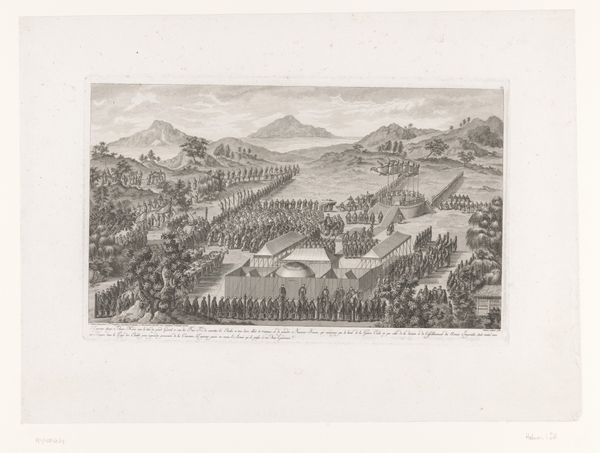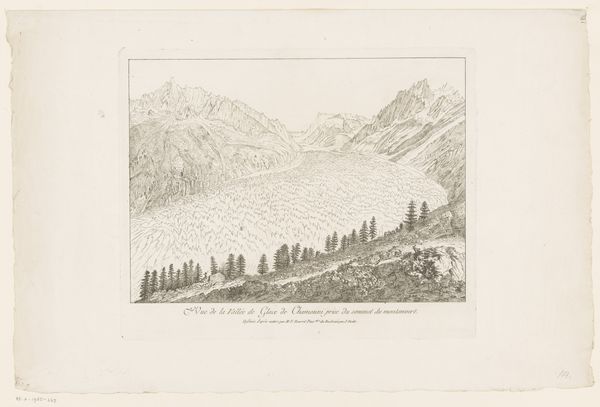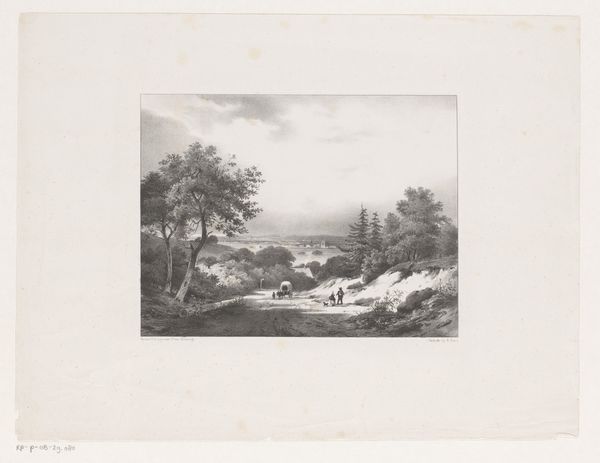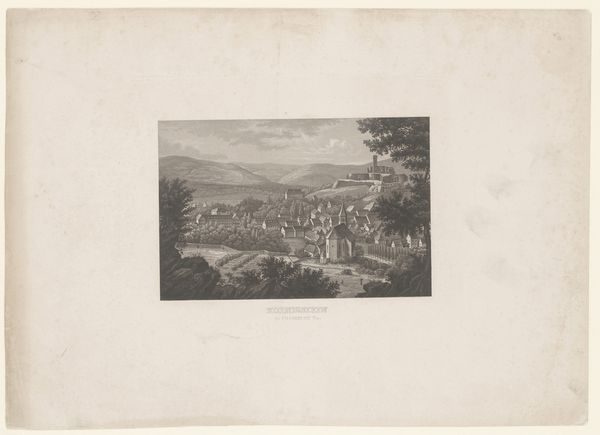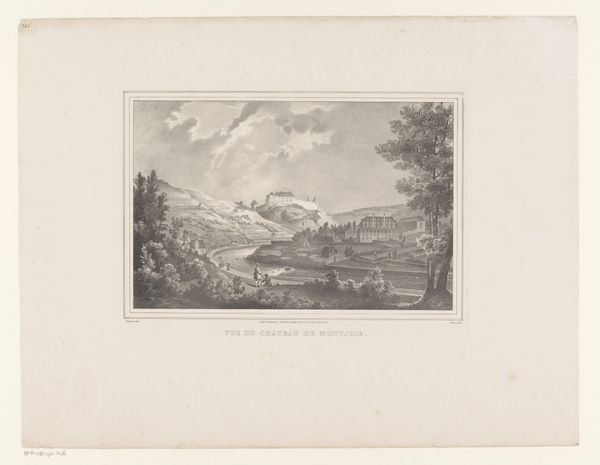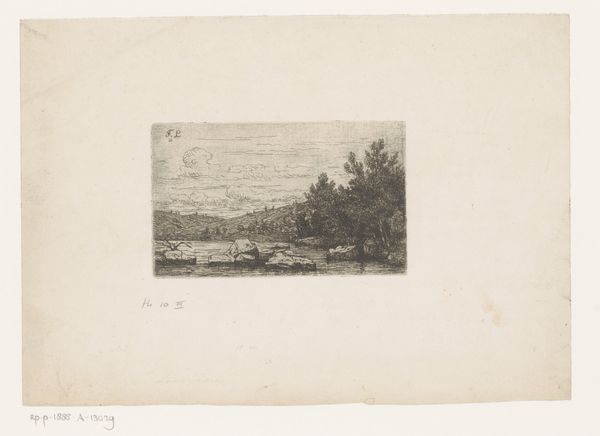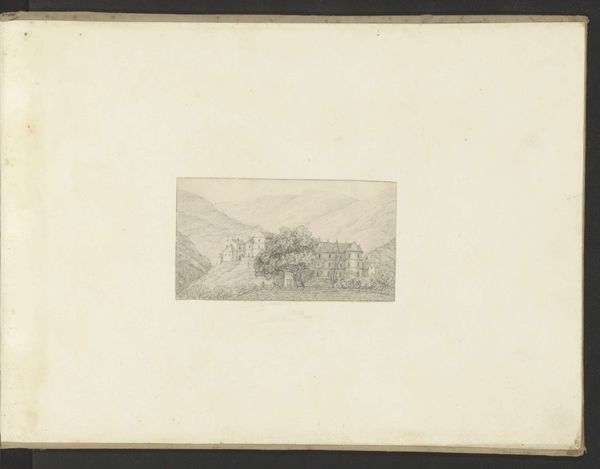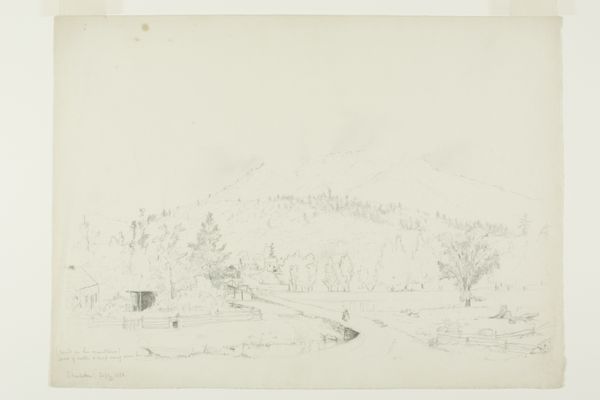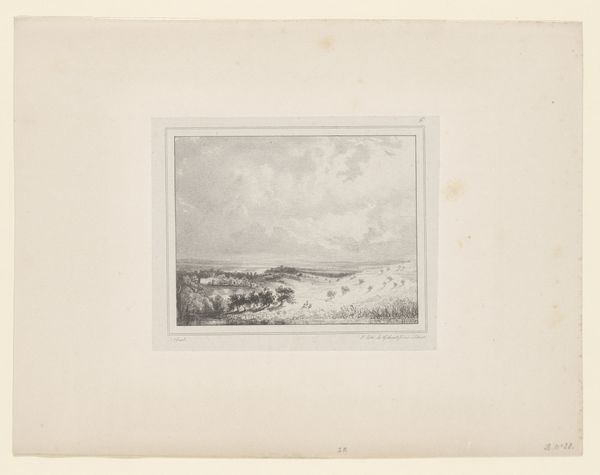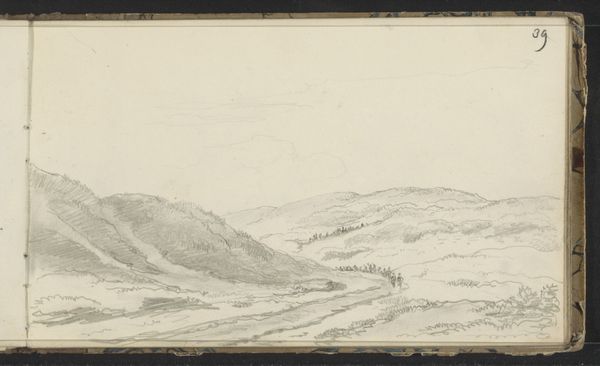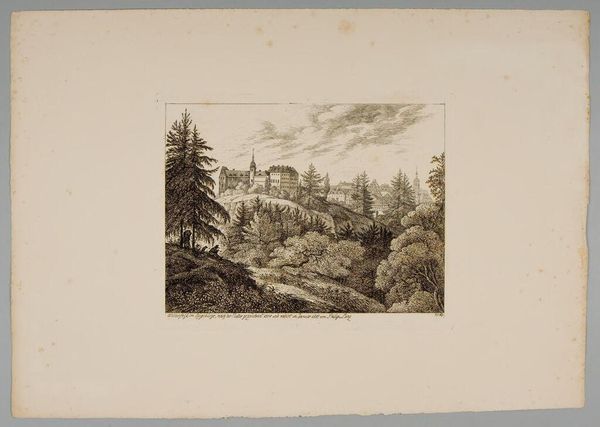
drawing, pencil
#
drawing
#
aged paper
#
homemade paper
#
pale palette
#
light coloured
#
asian-art
#
sketch book
#
landscape
#
personal sketchbook
#
pencil
#
sketchbook drawing
#
storyboard and sketchbook work
#
sketchbook art
#
design on paper
#
realism
Dimensions: height 303 mm, width 386 mm
Copyright: Rijks Museum: Open Domain
Curator: Immediately striking is the monochromatic palette; the subtle gradations in pencil give it such a delicate, almost ghostly quality. Editor: This is "Gezicht op Malang," or "View of Malang," a pencil drawing by Willem Mathol de Jong, dating from after 1838. It captures the landscape of Malang, a region in what is now Indonesia, during the period of Dutch colonial rule. Curator: You can see how the artist renders form almost entirely through line. It’s linear precision gives definition to each element: trees, fields, and mountain in the background, which are also composed with such balanced symmetry. Editor: That calculated precision, though, has to be understood within its historical context. These meticulous depictions of landscape served a function—they were instrumental in constructing a vision of the colony for a European audience. The “untamed” land tamed through depiction. Curator: Are you saying the form is complicit? It seems too straightforward to say so, it has too many subtle effects. The shading softens the sharp outlines, creating depth but also ambiguity. Editor: Indeed. The composition leads our eye through constructed pathways and the figures included remind us of imposed labor, human agency, working to tame nature’s “unruliness." I also can’t help but to wonder about de Jong’s perspective as a Dutch artist representing colonized land; a view conditioned through a colonist's privilege and worldview. Curator: So, we should see the visual harmony not just as a beautiful depiction of place but as a power statement? That's fascinating, because even just visually, I was curious by this work's seeming completeness alongside the feeling of preliminary observation. It has a compelling ambivalence. Editor: Exactly, the drawing encourages an exercise in historical reading. It's beautiful, yes, but that beauty carries the weight of colonial history. Curator: Thanks to this landscape depiction, my viewing of the place has transformed today; I find myself now pondering more historical considerations of Asian art-making. Editor: I am struck again by de Jong’s deft use of pencil; and the more that we consider and come to understanding regarding his choice of depiction in relation to political contexts of his time, the more rewarding the drawing reveals itself to be.
Comments
No comments
Be the first to comment and join the conversation on the ultimate creative platform.
